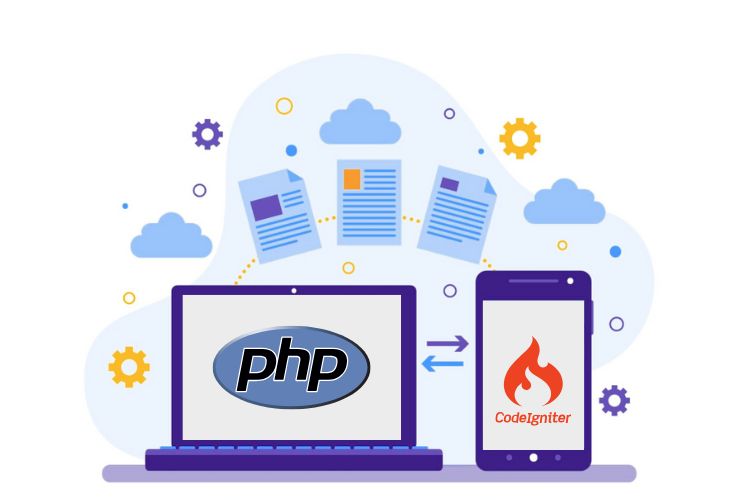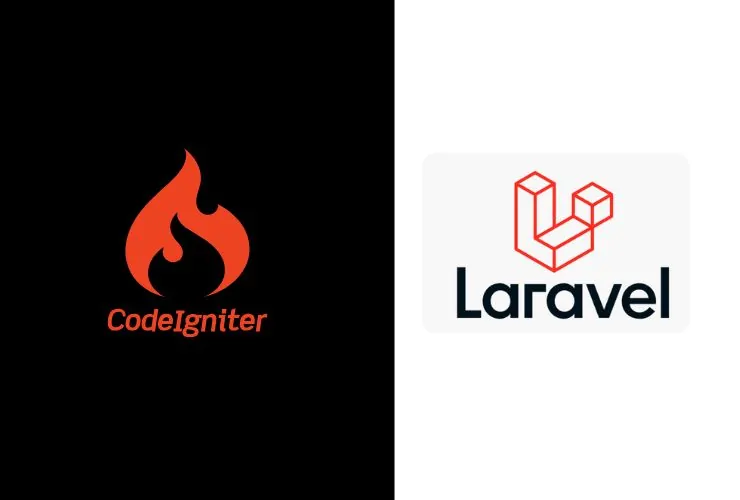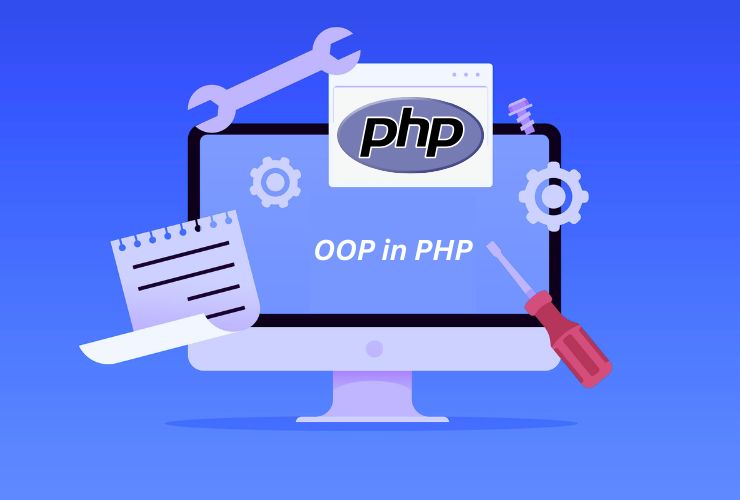Properly managing your databases is a fundamental aspect of any real-world web application. In this post, we’ll show you how to apply models, query helpers, and best practices in CodeIgniter in such a way that delightfully performant, secure, and scalable applications can be built. We hope that whether you’re a developer working on your craft, or a business building scalable web products, these methods will serve you well.
And if you’re looking for an expert delivered solution, we at Empirical Edge deliver expert CodeIgniter development services that help businesses centralize their databases into robust application-oriented database-driven applications.
1. Logic in Models, not Controllers
One of the first learnings developers forget after they start using a framework like CodeIgniter is it is easy to put too much logic into their controllers. Controllers should only be concerned with controlling the aspects of the application flow, requests and responses.
They should have little to no database query logic inside controllers. Whenever a controller starts to accumulate logic, there needs to be an evaluation as to whether there is an alternative solution to query the data storage abstraction in models. You immediately model logic in models instead of moving application logic from operations as business logic. This has the added benefit of also…..
- Encouraging separation of concerns any controller should never have any doubt as to their function since any application request will place a differentiating point between the model database layer of data storage logic.
- Encouraging reusability we can use this database logic in other parts of the application we build.
- Easier debugging and testing since we can verify smaller and guaranteed usable units.
More manageable code because you have basic data consumption requirements in models, less code means less stack trace and less confusion for conferences on where errors happened in the code.
By keeping your controllers slim, you are encouraging a more maintainable and scalable architecture in your applications.
2. Use the Query Builder – Smarter and Safer
One of the most powerful tools in CodeIgniter is the Query Builder – a feature that allows you to build queries in a clean, chainable syntax that is readable and less prone to mistakes.
More importantly, it automatically escapes data, which eliminates a considerable excerpt of SQL injection attacks. With this level of abstraction, you can build queries that are both easy to write and arguably secure.
As a best practice, when building queries, you will want to only select the exact fields you need instead of using SELECT *. This small change increases performance and also avoids unnecessary data transfer.
3. Optimize Queries – Efficiency is Key!
A lot of performance bottlenecks will arise from bad queries to the database. When optimizing, consider the following:
- Index columns that are frequently searched on: this will allow the database to improve lookup times for WHERE, JOIN, and ORDER BY clauses.
- Limit results how you want them: especially on high-traffic applications, always set reasonable limits to avoid hammering the server.
- Batch operations: Use batch inserts and updates since they reduce the overhead of multiple database hits to load a large amount of data.
- Cache your queries: each time you run your query it makes a second hit to the database. Caching frequently used queries saves you that second hit.
- Profiling tools: regularly profiling your queries is a good way to find bottlenecks, and therefore improve performance.
If you follow these suggestions, you can optimize your queries proactively, allowing your CodeIgniter application to be responsive, even under load where application responsiveness is needed.
4. Intelligent Data Relationships & Soft Deletes
Real-world applications often involve complicated relationships between tables. CodeIgniter has features to help you work with those relationships.
Eager loading (with joins) will allow you to load all of your data using fewer queries. This can help you avoid performance problems, like the infamous N+1 issue rather than loading large amounts of related data.
If your application is involved with sensitive, important data, always use soft deletes as a best practice. Instead of deleting records, you are updating them with timestamps, which means you don’t need to lose any data other than the human-readable record. Your data integrity is ensured, and you’ll always be able to recreate it at a later date, if necessary.
Soft deletes also support auditing. This is, of course, only important if you work in a heavily regulated industry such as finance, healthcare, and eCommerce.
5. Schema Design & Transactions
Schema your design can be your best friend or your worst enemy when your application comes to application performance. CodeIgniter has a Schema Builder that helps you interact with tables and their relationships programmatically. Some best practices include:
- Normalization: Reduces redundancy and increases data integrity
- Meaningful naming conventions: Increase clarity of your data model your team
- Indexes: Find a balance between speed and your storage requirements.
- Remember: proper use of transactions ensures a series of related database operations completes successfully or backs out entirely.
This guarantees the consistency of your data and is fundamental in any financial/CMS application or if your business involves any sensitive data.
6. Keep It Secure
Database security is equally as important as performance. In CodeIgniter, there are some layers of protection that help your data:
- Input Basis and validation to prevent malicious injections.
- CSRF protection to protect against unintentional actions.
- Regular framework updates to stay up-to-date and secure with patches.
- Using encrypted connections (HTPT) and strong password hashing methods to protect user credentials.
By following these recommendations, you could become compliant based on your industry with policies such as GDPR, HIPAA, and PCI DSS.
7. Stay Organized & Maintainable
Sometimes scalability is about performance, while some times, scalability is about maintainability. A CodeIgniter application that is organized properly can help with long-term productivity.
Use logical naming conventions for your models, controllers, and database tables.
- Break down larger models to smaller modular units for scalable reviews.
- Keep controllers and models short and flat to promote reusable logic for libraries or helpers.
- Always use the PHP DocBlock comments and maintain a version-control system (i.e. Git) if developing with a team.
- An organized and disciplined approach can help reduce technical debt and developer training.
8. Write Raw SQL If You Have To
As we pointed out earlier, CodeIgniter’s query builder provides an excellent abstraction over SQL in most situations, but there will be times that raw SQL can be the more suitable option—especially for large-scale queries or performance-sensitive situations.
The trick is to find the proper balance between convenience and control. It’s important to note that, if you do write raw SQL, make sure that you:
- Parameterize to avoid security risks.
- Document the query.
- Profile performance.
Raw SQL should be used judiciously, however, it can be a powerful compliment to CodeIgniter’s query builder and increase efficiency.
9. Leverage Experts in CodeIgniter Development
All of the best practices we’ve outlined here take efforts, expertise, and above all else, precision. This is where engaging professional support is worth its weight in gold.
At Empirical Edge, we specialize in:
- Custom CodeIgniter web applications that meet your business needs.
- Integrations with MySQL, PostgreSQL, MongoDB, and cloud-based databases.
- Performance optimization for high-traffic applications.
- Full lifecycle support from planning and migration to scaling and ongoing maintenance.
We have extensive experience with CodeIgniter development, and our team of knowledgeable developers will ensure your application is not only functional, but also FAST, SECURE, and FUTURE-PROOF.
Conclusion
Mastering database management in CodeIgniter isn’t about following a single rule—it’s about adopting a holistic strategy. By keeping logic within models, leveraging the query builder, optimizing queries, designing smart schemas, ensuring security, and maintaining clean organization, you create a foundation for applications that can grow alongside your business.
And if you’re looking for a trusted partner to bring these practices to life, Empirical Edge is here to deliver seamless, high-performance CodeIgniter solutions. Together, let’s build scalable applications that stand the test of time.
Build Secure & High-Performance Applications with Expert CodeIgniter Development
Looking to optimize your database architecture and improve application performance? Empirical Edge delivers custom CodeIgniter solutions, integrations, and lifecycle support to help your business scale with confidence.
Frequently Asked Questions
Proper database management is essential for building secure, scalable, and high-performing web applications, helping businesses maintain reliable data systems.
Database logic should be kept inside models rather than controllers to improve separation of concerns, reusability, debugging, and maintainability.
Query Builder allows developers to create clean, readable queries while automatically escaping data to reduce SQL injection risks and improve security.
You can enhance performance by indexing frequently searched columns, limiting results, batching operations, caching queries, and profiling for bottlenecks.
Soft deletes update records with timestamps instead of permanently removing them, preserving data integrity and supporting auditing—especially useful in regulated industries.














